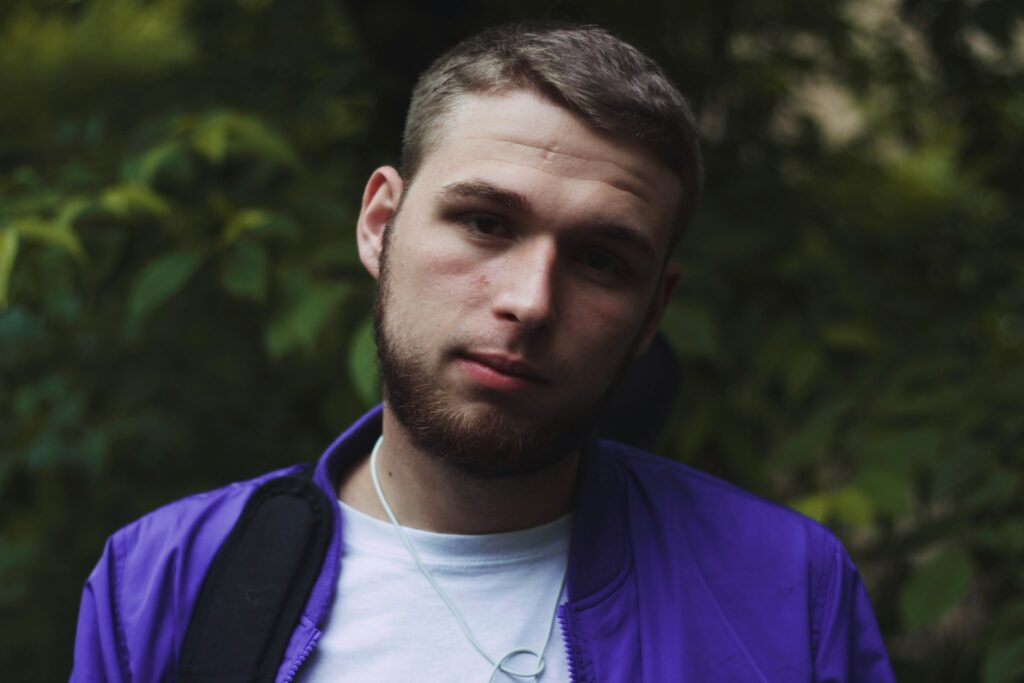Every generation has had its own way of dealing with emotional pain, but Gen Z is doing things differently—and on purpose.

From the way they speak about mental health to the boundaries they set with zero guilt, they’re not just healing quietly. They’re changing how healing looks, feels, and flows, and making new strides in mental health that will change the way future generations think, feel, and act for the better. Here’s what they seem to understand that generations before them often didn’t.
1. They normalise talking about mental health without shame.

Older generations often pushed through emotional struggles silently, treating things like anxiety, depression, or burnout as personal failures or private matters. But Gen Z grew up with online spaces that encouraged naming what you’re feeling and finding people who relate. For them, mental health isn’t a taboo. It’s a topic of conversation, not a secret.
That openness doesn’t just benefit them; it helps destigmatise mental health for everyone. By speaking up early and often, they’ve made it easier for everyone else to say, “I’m not okay” without feeling broken or weak. It’s one of the most powerful cultural shifts in decades, and they’ve led the charge with raw honesty.
2. They understand that rest is productive.

Gen Z has made it clear they’re done with burnout as a lifestyle. Unlike older generations who often tied self-worth to overworking, this group sees rest as a necessity, not laziness. Rest is how they recharge, check in with themselves, and avoid spiralling into emotional shutdown. It’s not avoidance; it’s maintenance.
They unapologetically take breaks, skip hustle culture, and turn down what doesn’t serve them. It might look rebellious to some, but it’s actually strategic. They know that protecting their peace isn’t selfish. In fact, it’s necessary for staying afloat in a world that never stops demanding.
3. They set boundaries early, and don’t apologise for them.

One of Gen Z’s strongest traits is how comfortably they say no. Whether it’s declining a phone call, walking away from a toxic workplace, or refusing to tolerate microaggressions, they’ve learned that boundaries aren’t rude. Really, they’re survival tools. And they don’t over-explain them.
They’ve watched previous generations stay in situations out of guilt or obligation and decided they’re not doing that. For Gen Z, peace of mind is worth more than approval. They set limits early, hold to them firmly, and don’t see protecting their energy as selfish—it’s just smart.
4. They take inner work seriously, even in their 20s.

Instead of waiting until a breakdown forces them into reflection, Gen Z is starting the healing process young. Many are already in therapy, reading about trauma responses, exploring emotional regulation, and working to unlearn generational patterns—before life forces them to.
This early investment in self-awareness sets them up to move through life with more insight, less reactivity, and fewer unresolved issues bleeding into relationships. They’re not waiting until midlife to figure themselves out. They’re doing the work now, even when it’s uncomfortable.
5. They prioritise friendships that feel like family.

Gen Z knows that blood isn’t always synonymous with support. They put real effort into building chosen families—tight-knit friendships that offer understanding, comfort, and emotional safety. These connections aren’t surface-level—they’re deeply intentional.
In a time when so many traditional structures are in flux, these friendships act as anchor points. They don’t just help them feel seen; they help them heal. Whether it’s through group chats, late-night voice notes, or just sitting in silence together, these relationships provide the kind of space where growth is possible.
6. They reject outdated definitions of strength.

Gen Z has helped redefine what resilience looks like. For them, being strong doesn’t mean pretending everything’s fine or pushing through no matter what. It means showing up as you are, even when that means being soft, scared, or unsure. Vulnerability isn’t weakness. It’s honesty.
By modelling openness and imperfection, they’ve made space for others to do the same. Crying in a public restroom, admitting they need help, or saying “I’m not okay” is normalised, not judged. That change alone allows for healing to start earlier, without the shame so many grew up carrying.
7. They don’t equate forgiveness with access.

Gen Z is clear on this: just because you forgive someone doesn’t mean you have to let them back in. They’ve helped popularise the idea that boundaries can exist even after peace has been made. Healing isn’t about restoring relationships—it’s about restoring yourself.
This approach protects them from re-entering cycles that previously wore them down. It’s not bitterness; it’s growth. They’ve moved away from performance forgiveness and into something deeper and more self-respecting. It’s a lesson other generations are still learning.
8. They lean into non-traditional healing tools.

From journaling and EFT tapping to astrology, energy healing, and tarot, Gen Z is more open to exploring paths that blend the emotional, spiritual, and intuitive. They don’t rely solely on traditional mental health routes—they build healing rituals that actually resonate with them.
This open-mindedness allows for flexibility, creativity, and a sense of personal ownership over their healing journeys. They’re not looking for one-size-fits-all solutions; they’re building toolkits that honour their complexity, and they’re not waiting for permission to do so.
9. They know that identity is part of healing.

Gen Z is far more fluent in how race, gender, class, and queerness intersect with emotional wellbeing. For them, identity isn’t separate from healing—it’s central to it. They recognise that the systems they live in impact how safe they feel, how seen they are, and how deeply they’re hurt.
This understanding makes their approach to healing more layered, more inclusive, and often more political. They aren’t just working on themselves in a vacuum—they’re addressing how the world has shaped their wounds. That kind of context leads to deeper, more conscious recovery.
10. They’re not afraid to challenge generational norms.

Gen Z questions things that other generations accepted without blinking. Whether it’s calling out toxic parenting, naming narcissism, or pushing back against “that’s just how it was,” they don’t let tradition override truth. And that courage opens up healing on a bigger scale.
They’re breaking cycles not with aggression, but with awareness. They ask, “Why do we do this?” and “Is this healthy?”—questions that previous generations often never dared to say out loud. And that curiosity is helping entire families change, not just individuals.
11. They find comfort in calling things what they are.

Language is a huge part of healing, and Gen Z has expanded the emotional vocabulary. Terms like gaslighting, emotional labour, trauma responses, and boundaries have become everyday language, and that helps people name what they’ve experienced instead of stuffing it down.
Having that clarity allows them to understand what’s happening inside them, communicate better, and find the right kind of support. It also builds community. When people have words for what they feel, they’re more likely to connect, speak up, and stop blaming themselves for things they couldn’t name before.
12. They accept that healing isn’t linear.

Gen Z understands that progress doesn’t move in straight lines. They don’t shame themselves for setbacks or compare their healing timeline to someone else’s. If they’re having an off week or circling back to an old wound, they don’t pretend it means they’ve failed.
This gives other people permission to be gentler with themselves, too. Healing becomes less about hitting milestones and more about staying connected to what’s real. And when you don’t expect perfection, it’s easier to keep going, even on the messy days.


